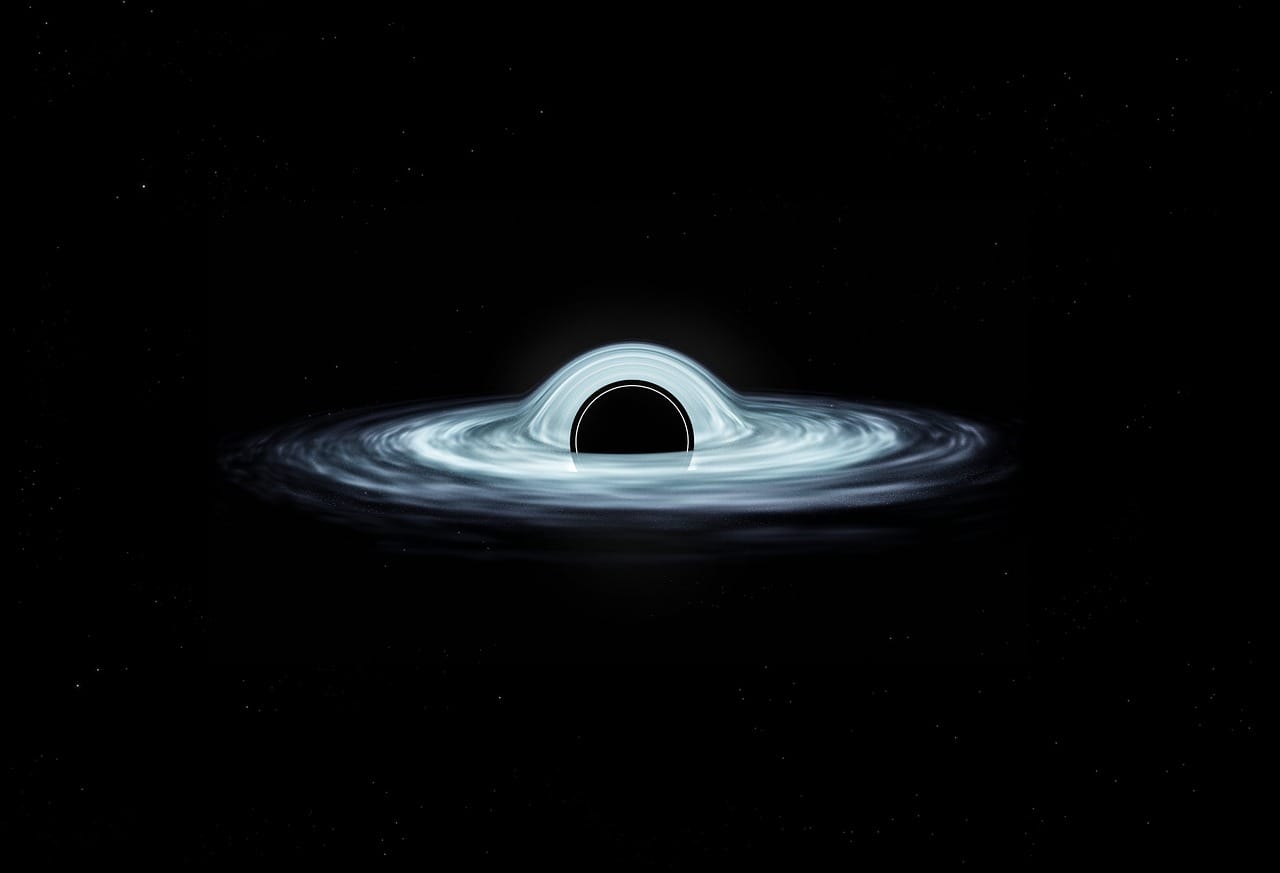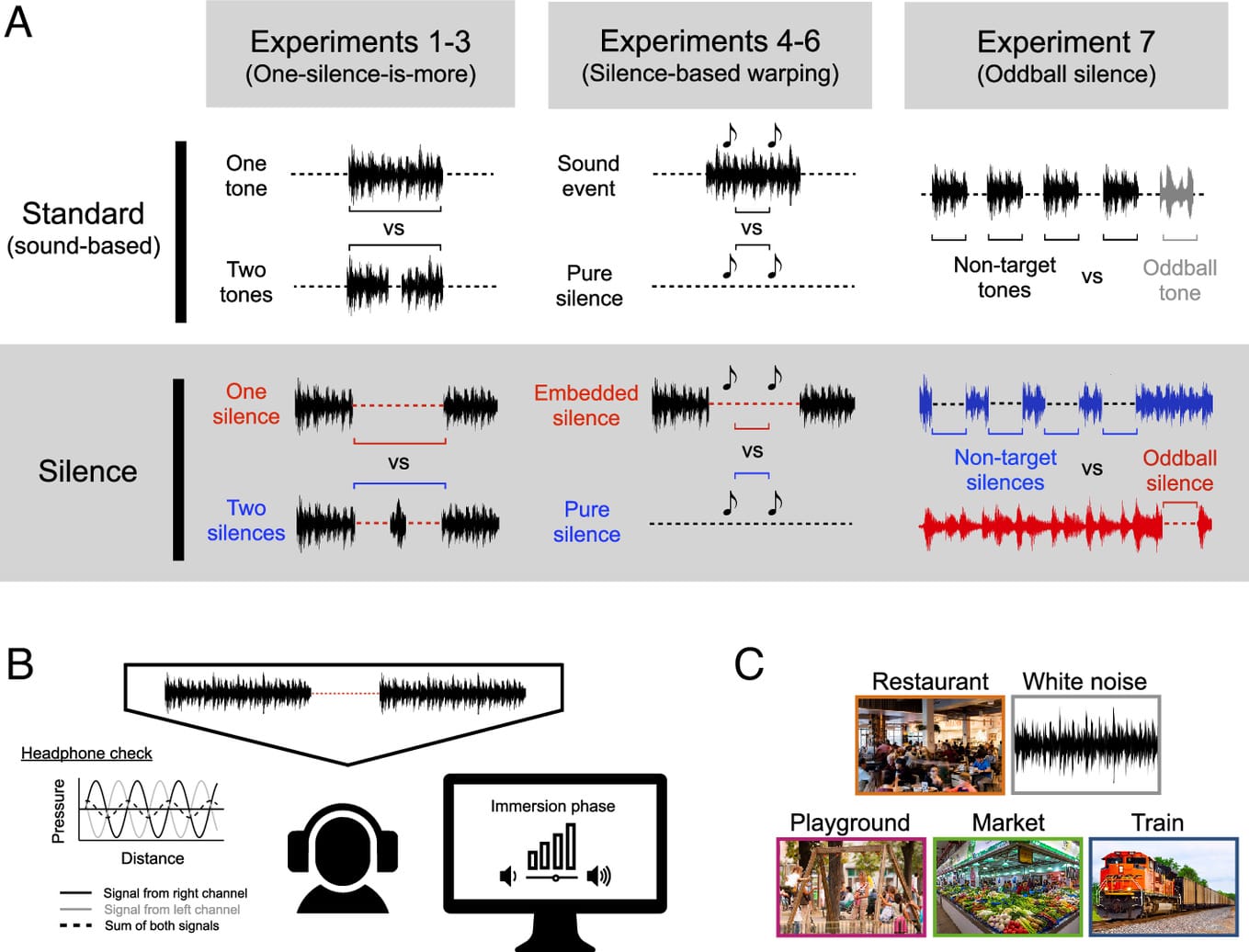The extraordinary potential of anti-sound
Sound has frequency, intensity, phases, etc. But an indispensable part of sound is its unseen side: silence.

Do we only hear sounds, or can we also hear silence?
Sound has frequency, intensity, phases, etc. But an indispensable part of sound is its unseen side: silence. Silence has a fundamental value in our daily lives. In nature, in artificial emissions, in the rhythm of voices when we speak, in the perfect mix of our favorite playlist. And writers use silence, too: the pauses, the allusions, the punctuation, the unspoken words given to the reader as perceptions.
Silence might not be deafening but it’s something that literally can be heard, concludes a team of philosophers and psychologists who used auditory illusions to reveal how moments of silence distort people’s perception of time.

Silence is an element of time and flows through acoustic space in close connection with its antithesis, noise. It is their interplay that gives balance to our acoustic perception, because silence prepares the ear-brain system for the succession of sounds. Silence is a dimension of sound; it is not just emptiness. But it is almost impossible for us humans to experience absolute silence (the total absence of sound) because we are constantly immersed in sound (or noise). A human being, by the very fact of being alive, interacts with the environment by exchanging sounds with it, even if they are so faint as to be imperceptible. And consider that the total absence of sound can be a rather unpleasant experience. In fact, Mitchell (the main character in Nuclear Bulge levels) is first challenged by the perfect silence he is experiencing (a cosmic silence), in which every sound that manages to reach him becomes an emotional hook with a past that, for some reason you will discover in the next episode, has been reset.
Auditory perception is traditionally conceived as the perception of sounds — a friend’s voice, a clap of thunder, a minor chord. However, daily life also seems to present us with experiences characterized by the absence of sound — a moment of silence, a gap between thunderclaps, the hush after a musical performance.
The discomfort of experiencing absolute silence lies in the fact that the ear-brain system constantly and automatically exchanges a lot of information about the sound propagation in the surrounding space and uses this data to draw a mental map that allows it to interact effectively with the world around. The correct perception and interpretation of this data greatly affects some basic functions such as orientation, balance, and movement coordination. Some say that even unconscious thinking is affected.
There are studies that suggest that the longest people can tolerate being in a completely silent environment is 45 minutes.
Seeking Stillness: One of the Quietest Rooms in the World | NBC Left Field
The silence can be so uncomfortable that we try to fill it up with random music, sounds, and noises. Maybe this happens because, in order to keep up with an increasingly fast-paced, confusing, and noisy world, we gradually become unaccustomed to listening to ourselves and our inner life, and we tend to fill the silence with sound, no matter where we are or what we are doing. Let’s try the opposite, listen to, isolate, and learn to find the silence between sounds. Perhaps we will learn about the extraordinary potential of anti-sound.
And you? Have you ever experienced the extraordinary power of silence?
- The perception of silence (Edited by Steven Luck, University of California, Davis, CA; received February 8, 2023; accepted May 10, 2023 by Editorial Board Member Michael S. Gazzaniga).
- The sound of silence? Researchers prove people hear it, 10-Jul-2023, Johns Hopkins University.
- The power of silence, Taken from the April 2014 issue of Physics World, 03 Apr 2014.
- Should physicists work to the sound of silence?, PhysOrg, 2014.
- Goodbye big bang, hello big silence, by Michael Brooks, 11 June 2014.
- Reducing noise below the sound of silence, by Nick Carne, 2020.
- Reducing noise of quantum light below the sound of silence, Australian National University, 2020.
- Silence Is a ‘Sound’ You Hear, Study Suggests, 2023.
- What Is Sound?, by Jonathan Hanna, 2024.
- Il silenzio: il lato oscuro del suono (e l’importanza di farselo amico), by Marco Silvestri.
